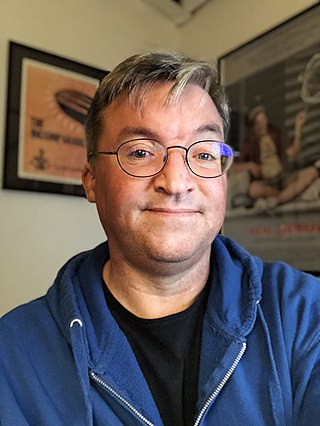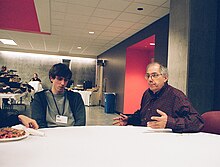
In a positive connotation, a hacker is a person skilled in information technology who achieves goals by non-standard means. Though the term hacker has become associated in popular culture with a security hacker – someone with knowledge of bugs or exploits to break into computer systems and access data which would otherwise be inaccessible to them – hacking can also be utilized by legitimate figures in legal situations. For example, law enforcement agencies sometimes use hacking techniques to collect evidence on criminals and other malicious actors. This could include using anonymity tools to mask their identities online and pose as criminals. Likewise, covert world agencies can employ hacking techniques in the legal conduct of their work. Hacking and cyber-attacks are used extra-legally and illegally by law enforcement and security agencies, and employed by state actors as a weapon of legal and illegal warfare.
The hacker ethic is a branch of philosophy, originating from hacker culture and pertaining to the idea that intellectual goods, like information and data, cannot be owned by an individual, hence sharing them with others is an ethical imperative. It shares several traits with concepts such as freedom of information, and political philosophies such as anti-authoritarianism, socialism, liberalism, anarchism, and libertarianism.
Wired is a monthly American magazine, published in print and online editions, that focuses on how emerging technologies affect culture, the economy, and politics. Owned by Condé Nast, its editorial offices are in San Francisco, California, and its business office at Condé Nast headquarters in Liberty Tower in New York City. Wired has been in publication since its launch in January1993. Several spin-offs have followed, including Wired UK, Wired Italia, Wired Japan, Wired Czech Republic and Slovakia and Wired Germany.

The iPod is a discontinued series of portable media players and multi-purpose mobile devices designed and marketed by Apple Inc. The first version was released on November 10, 2001, about 8+1⁄2 months after the Macintosh version of iTunes was released. Apple sold an estimated 450 million iPod products as of 2022. Apple discontinued the iPod product line on May 10, 2022. At over 20 years, the iPod brand is the oldest to be discontinued by Apple.

The Power Mac G4 Cube is a Mac personal computer sold by Apple Computer, Inc. between July 2000 and 2001. The Cube was conceived as a miniaturized but powerful computer by Apple chief executive officer (CEO) Steve Jobs and designed by Jony Ive. Apple developed new technologies and manufacturing methods for the product—a 7.7-inch (20 cm) cubic computer housed in clear acrylic glass. Apple positioned it in the middle of its product range, between the consumer iMac G3 and the professional Power Mac G4. The Cube was announced at the Macworld Expo on July 19, 2000.

The Homebrew Computer Club was an early computer hobbyist group in Menlo Park, California, which met from March 1975 to December 1986. The club had an influential role in the development of the microcomputer revolution and the rise of that aspect of the Silicon Valley information technology industrial complex.

Macworld is a digital magazine and website dedicated to products and software of Apple Inc., published by Foundry, a subsidiary of IDG.
FairPlay is a family of digital rights management (DRM) technologies developed by Apple Inc. for protecting videos, books and apps and historically for music.

Hackers: Heroes of the Computer Revolution (ISBN 0-385-19195-2) is a book by Steven Levy about hacker culture. It was published in 1984 in Garden City, New York by Doubleday. Levy describes the people, the machines, and the events that defined the Hacker culture and the Hacker Ethic, from the early mainframe hackers at MIT, to the self-made hardware hackers and game hackers.
Katie Hafner is an American journalist and author. She is a former staff member of The New York Times, and has written articles and books on subjects including technology and history. She co-produces and hosts the podcast series Lost Women of Science. Her first novel, The Boys, was published in 2022.
The Apple community is the users, media, and third party companies interested in Apple Inc. and its products. They discuss rumors, future products, news stories, and support of Apple's products. Apple has a cult-like following, especially for the Apple II, Macintosh, iPod, iPhone, and luminary staff members. The personal computer revolution, mixed with Apple's vertical integration of its products and services, has increased popularity. Apple's corporate policy of extreme secrecy about future products intensify interest in the company's activities.

Jason Snell is an American writer, editor, and podcaster whose professional career has been split between covering technology—heavily focused on Apple Inc.'s Macintosh computers, iPhones, and services—and pop culture. Snell was an early Internet publisher, producing the fiction journal InterText, as well as creating or editing several other early Internet magazines and websites. He served in a variety of editorial positions at IDG during more than 25 years, including as editor-in-chief of Macworld magazine. He finished up his IDG tenure serving as the senior vice president of IDG Consumer & Small Business Publishing (CSMB). He continues to write a weekly column at Macworld.
Peter R. Samson is an American computer scientist, best known for creating pioneering computer software for the TX-0 and PDP-1.

Michael S. Tomczyk is best known for his role in guiding the development and launch of the first microcomputer to sell one million units, as Product Manager of the VIC-20 from Commodore. His contributions are described in detail in his 1984 book, THE HOME COMPUTER WARS: An Insider's True Account of Commodore and Jack Tramiel. His role is also documented extensively in numerous interviews and articles. The VIC-20 was the first affordable, full-featured color computer and the first home computer to be sold in KMart and other mass market outlets. Michael joined Commodore in April 1980 as Assistant to the President. He has been called the "marketing father" of the home computer. Michael was also a pioneer in telecomputing, as co-designer of the Commodore VICModem, which he conceived and contracted while at Commodore. The VICModem was the first modem priced under $100 and the first modem to sell one million units.
People's Computer Company (PCC) was an organization, a newsletter and, later, a quasiperiodical called the Dragonsmoke. PCC was founded and produced by Dennis Allison, Bob Albrecht and George Firedrake in Menlo Park, California in the early 1970s.

The Mac, short for Macintosh, is a family of personal computers designed and marketed by Apple. The name Macintosh is a reference to a type of apple called McIntosh. The product lineup includes the MacBook Air and MacBook Pro laptops, and the iMac, Mac Mini, Mac Studio, and Mac Pro desktops. Macs are sold with the macOS operating system.
The Jargon File is a glossary and usage dictionary of slang used by computer programmers. The original Jargon File was a collection of terms from technical cultures such as the MIT AI Lab, the Stanford AI Lab (SAIL) and others of the old ARPANET AI/LISP/PDP-10 communities, including Bolt, Beranek and Newman, Carnegie Mellon University, and Worcester Polytechnic Institute. It was published in paperback form in 1983 as The Hacker's Dictionary, revised in 1991 as The New Hacker's Dictionary.

The Open Compute Project (OCP) is an organization that shares designs of data center products and best practices among companies, including Arm, Meta, IBM, Wiwynn, Intel, Nokia, Google, Microsoft, Seagate Technology, Dell, Rackspace, Hewlett Packard Enterprise, NVIDIA, Cisco, Goldman Sachs, Fidelity, Lenovo and Alibaba Group.
Margot Comstock was co-founder and editor of Softalk magazine, which was influential in the Apple II community, as part of a growing personal computing movement.











